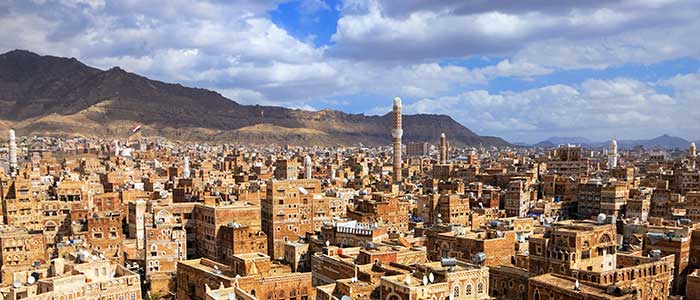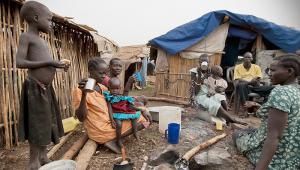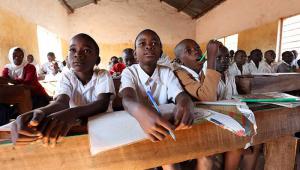Web-Yemen_shutterstock_86975528.jpg

Sana'a, Yemen's capital city, before the conflict
The money will support the largest ever humanitarian response plan for the situation in the country, which was recently dubbed the worst forgotten humanitarian crisis in the world.
Already the poorest nation in the region, Yemen’s plight worsened when Saudi Arabia joined an ongoing internal conflict in March 2015. Since then, a brutal bombing campaign has killed thousands and pushed the country to breaking point.
More than 18.8 million people – over two thirds of the country’s population – are in need of aid.
“Two years of war have devastated Yemen and millions of children, women and men desperately need our help,” said Stephen O’Brien, the UN’s humanitarian aid chief.
“Without international support, they may face the threat of famine in the course of 2017 and I urge donors to sustain and increase their collective response.”
Millions of people in the country – including 2.1 million children – are acutely malnourished and in desperate need of food. Many have already died after ports closed and basic foods became unavailable or too expensive for those who lost their homes and livelihoods in the war.
Over ten million people are in need of some form of assistance immediately, according to the UN, whether that be food, water and sanitation, protection, or health and medical services.
All parties in the conflict have disregarded international humanitarian law, indiscriminately attacking civilians and civilian targets including schools and hospitals.
The World Health Organisation said that less than 45% of the country’s health facilities are still functioning, medical supplies are in chronic shortage and 14.8 million lack any access to basic healthcare.
“Beyond the direct casualties of the armed conflict, many Yemeni people die in silence and are largely unaccounted for, unnoticed and unrecorded,” said Rick Brennan, director of the WHO’s emergency operations.
“Girls, boys, women and men are dying of malnutrition and diseases that could be easily preventable and treatable. People with chronic diseases, including high blood pressure, diabetes, kidney conditions etc, are slowly dying as they lack access to life-sustaining treatments.”
He called on donors to scale up their response from 2016. Last year’s appeal called for $1.8bn for the UN and all its NGO partners’ work in Yemen. Just under $1bn was received.
The UN estimated last year that 10,000 people have died in the war so far, which continues to rage between government forces, backed by a coalition of Arab countries led by Saudi Arabia, and rebel groups backed by Iran.













